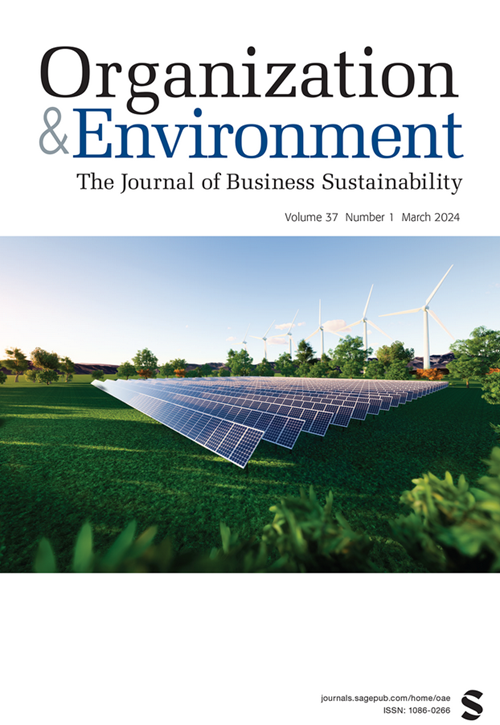可持续发展商业模式的组织动力学:变革的话语和认知途径
IF 7.3
4区 管理学
Q1 ENVIRONMENTAL STUDIES
引用次数: 1
摘要
可持续发展的商业模式(BMfS)使组织能够为各种利益相关者创造社会和环境价值。由于bmf对于已建立的行业来说是新的,它们的实现需要深刻的组织变革,以克服现有业务模型的路径依赖。在本文中,我们提出了一个框架,概述了BMfS开发中涉及的组织变革过程。该框架表明,组织可以尝试价值、资源和交易的新配置,并遵循话语和认知途径,使bmf合法化和实施。虽然价值、资源和交易杠杆既可以单独使用,也可以协同使用,但当同时使用时,话语和认知途径是最强大的。我们使用我们的框架来突出特刊中文章的贡献,并为BMfS研究提出新的方向。我们认为,未来的研究应探讨生物密度指数对其寻求解决的可持续性挑战的影响。本文章由计算机程序翻译,如有差异,请以英文原文为准。
The Organizational Dynamics of Business Models for Sustainability: Discursive and Cognitive Pathways for Change
Business models for sustainability (BMfS) enable organizations to create social and environmental value for a wide variety of stakeholders. As BMfS are new for well-established industries, their implementation requires deep organizational change to overcome path dependencies of existing business models. In this article, we present a framework which outlines the organizational change process involved in BMfS development. The framework shows that organizations can experiment with novel configurations of value, resources, and transactions, and follow discursive and cognitive pathways to enable BMfS legitimization and implementation. Although the value, resources, and transactions levers can be used either separately or in concert, discursive and cognitive pathways are most powerful when pursued together. We use our framework to highlight the contributions of the articles in the special issue and to propose new directions for BMfS research. We argue that future research should investigate the impacts of BMfS on the sustainability challenges they seek to address.
求助全文
通过发布文献求助,成功后即可免费获取论文全文。
去求助
来源期刊

Organization & Environment
Multiple-
CiteScore
11.20
自引率
5.70%
发文量
19
期刊介绍:
Organization & Environment encourages informed discussion about the social roots and consequences of environmental problems and stimulates deeper reflection on the meaning and significance of the natural world. By critically examining the impact of human production and consumption systems on the natural environment, Organization & Environment develops new perspectives on organizations that encourage environmentally sensitive reflection, inquiry, and practice.
 求助内容:
求助内容: 应助结果提醒方式:
应助结果提醒方式:


